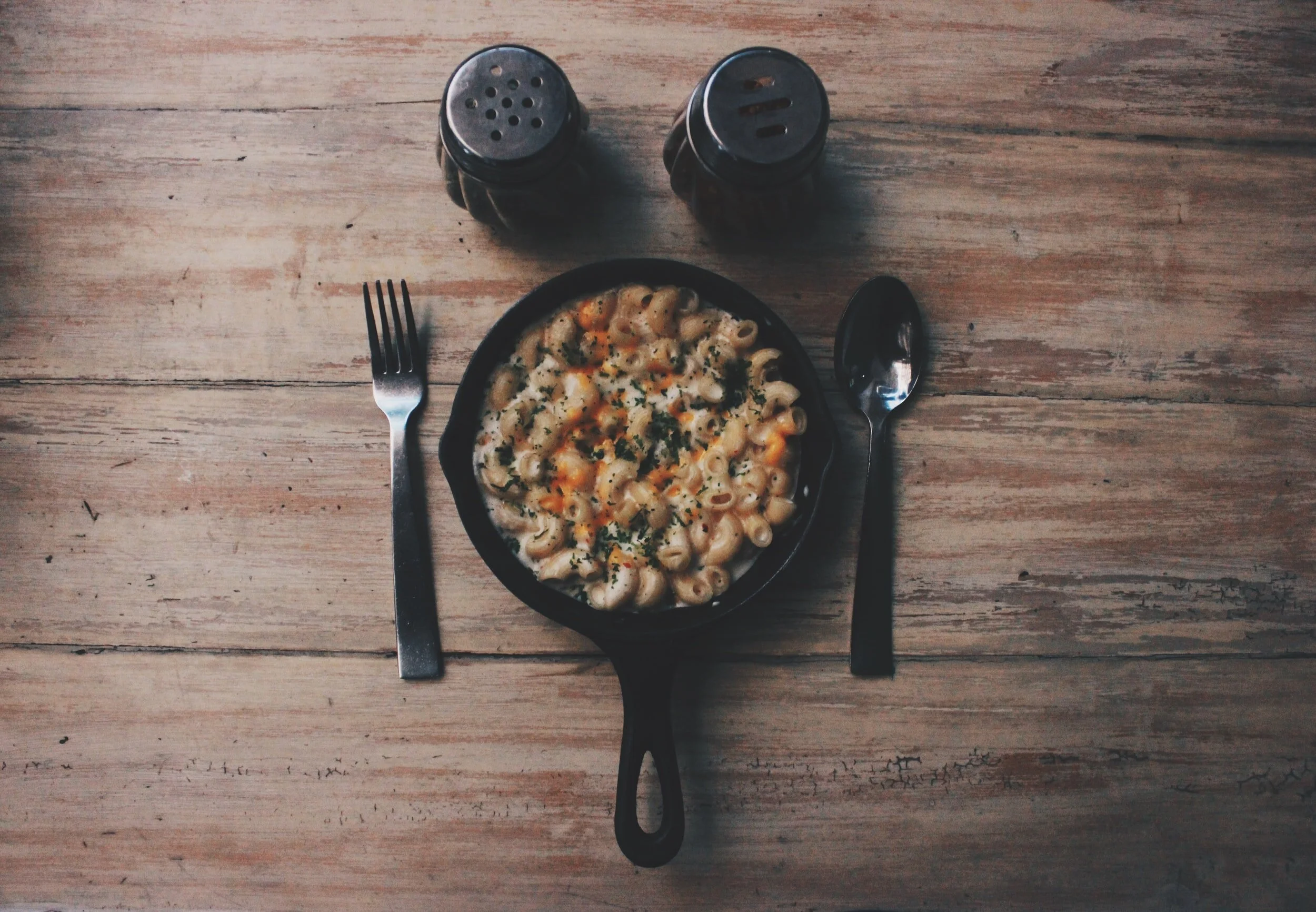The History of My Daughter
“Shoot your vagina up to the ceiling” one male doctor helpfully suggested as your head inched forward and back into my body again. Limp I stared into the bright white hospital light above me where I saw a vision of my own blood and guts floating on the ceiling. I learned later that this particular delivery room was famous for having a tinted convex light that reflected the labor in detail if you knew to look.
Helenore, from that position I saw the alien gore of your hairy little head and shoulders spill out of me. It’s an irreconcilable image—equally impossible and pedestrian. And I still find myself marveling at strangers—thinking about how most people come to this world in this way. Hours later, me high on Oxycontin, you an immobilized bundle swaddled at my side, I named you after all the women I could. The beauty and artistry of my maternal grandmother Helen. The grit and courage of my paternal grandmother Lenore. And then my last name, Stuteville, which is given to me by men, but has been forged by women and made visible—at least to the internet—by me.
But as I watch you grow from an idea into a strange person of your own, I realize this name is not really for you. It’s me who doesn’t want these women to disappear and I cannot carry them alone. You are my daughter, and unlike your brother, you have a job to do.
I have given you a name just odd enough that you will be forced to explain it throughout your life—to teachers, dates and job interviewers. And perhaps when you do, someone will ask a question about me, or one of the others, and in this way, we will live those moments longer. I will use your future to snatch back some of our history.
It’s a second wave cliché to protest the practice of women taking their husband’s name. Patriarchs, bloodlines, kinship, chattel. But despite the time worn earnestness, in 2008 I became the first woman in our family to retain my name when I married. And while there was some performative politics in the decision, the deeper reasons were practical and proud. I had made my way as a journalist named Stuteville and I didn’t want to lose that capital. When you google “Stuteville” I am the top result—right before an Oklahoman car dealership.
Unbelievably Helenore, our last name has managed to ride the tricky line between unpronounceable and unique, threateningly foreign and vaguely regal. And as white women in America we have the dual privilege of no one really caring where we’re from and of having a few lasting strands of knowledge about our past.
First, they were Vikings, “Stutegarts” and the women they made babies with—forced and otherwise. The babies of those babies’ babies became “Stutevilles,” pronounced the French way, without the hard “l’s.” Their children were Normans and the boys became landowners on a border that would pass between Britain and France in centuries worth of wars that none of us will ever need to understand. This group would have had a deep interest in the link between our name and land—as they parceled out ever diminishing properties to exponentially expanding generations of sons.
Once those sons had nothing left to fight over, at least one headed for America. There is a rumor that that man—the first Stuteville in America—was the bastard son of a maid named “Nancy” but in this land of possibility and murder, packed with resources both natural and human, he flourished. And so did his sons, who branched out to homesteads in Kentucky, Iowa, Indiana, Illinois, Michigan, Texas, Oklahoma and, eventually, Washington. One of those Stutevilles owned a slave named Sally. The historical documents do not include her last name, age, or any details of her family, so no engines will find her outside of searches done in the name of her owners. Sally who lived, and was imprisoned by our family, in the early 19th century of this country.
The Stuteville men of Oklahoma started car dealerships. The Stuteville men of Indiana worked at the local paper and the Stuteville men who came to Washington lived on a farm in Selah, a place of flat ranches, huge skies and flu epidemics. These biological waves of terror always seemed like an archaic part of a distant past, a time when nature still held the upper hand. Or they did until your second birthday Helenore. It was March of 2020, and we relocated your party to a cold damp park because something called “Corona Virus” was just beginning to infect teams of engineers at Amazon and old folk’s homes in the suburbs.
The Spanish Flu (which likely originated in Kansas) would take the patriarch Stuteville and leave your great-grandfather, Don, to suffer under brutal stepfathers whose names are intentionally forgotten to history. These are men only referenced by intergenerational whispers of drunken fists and boiling rage. Men unleashed on your great-great-grandmother Maime until they wore themselves out and died. Maime—who must have been made of iron—or maybe just knew how to survive. Maime, who died the proud sole owner of a boarding house, now turned multimillion dollar mansion, up by the park with the swings you love. Helenore, if these apocalyptic times turn out to be more than just a very unlucky year, remember that you come from flinty fucking women. Women who buried babies, ate food they grew themselves and outlived countless husbands. Their blood is yours to draw on whenever you need it.
Though I’ve traveled to most states in this country, it took me until I was forty to get to Wisconsin. I only knew it vaguely from serial killer documentaries, rust belt references, voter recounts and the fact that your Great Grandmother Lenore and her two sisters were born there. There wasn’t much to their small German-speaking community outside of Milwaukee by the time I arrived. A church, a graveyard with our family name, a lot of corn and a bar. In the bar I looked for something familiar in the people bent over their Friday “Fish Fry.” There was a thick-boned heartiness in the jeans and work boots, a skeptical posture in the face masks worn below the nose, even a poppyseed 7-UP cake on the dessert specials—the only baked good in my grandmother’s repertoire. But no hint as to why all three of them left as teenagers, boarded a train unchaperoned and headed to Seattle—a place none of them had ever seen. Maybe there doesn’t need to be a reason. Even now this strange city in the soggy corner of our strange country draws people to it. The last ragged edge of Manifest Destiny, a dark-wintered promise of being left the hell alone to be as weird—or as greedy—as you want.
The sisters’ mother was long dead. Another flu took her when the three of them were still small. I know less of their father. He was an out-of-work teacher and had a physical disability related to his arm—or maybe his hand. Anything I can use to explain why all his daughters left him would have to be squeezed from those two facts. Also, there have always been rumors of an “inappropriate relationship” between a Stuteville man back in Wisconsin and one of his students. Something bad enough that it followed the family name for generations.
There are almost no photos of your great grandmother Lenore before she was a middle-aged woman in polyester pants posing at tourist destinations up and down the West Coast. There is a blurry one of a fat toddler with ringlets. One from her modest wedding to a quiet soldier named Don. In another she holds a fat baby of her own and stands in front of a small box of a house in a northern Seattle neighborhood where such houses are now far out of the reach of working-class families.
When she and her sisters first arrived in Seattle, which was booming with Boeing war contracts, they worked as “shop girls” at the Frederick and Nelson’s department store downtown. They attended a Lutheran Church and lived in an apartment building in a neighborhood where a real estate redline would have separated the white migrants from the Black migrants. Helenore, the house you were born in is in the very same neighborhood, but on the other side of that historic red line—where now few black people can afford to live.
The only other historical information I have about my grandmother Lenore—who gives you half of your first name—is that she knew how to play the violin, though I never succeeded in getting her to play it for me. Also, she obtained her driver’s license at forty-three after which she drove often and fast, earning her nickname, “Lead foot Lenore.”
By the time I knew my grandmother she was a conservative woman with stern views of the world. She watched Murder She Wrote, she ate oatmeal for breakfast every morning, she drank her coffee black and sang “Jesus Loves Me” in a warbling soprano.
We shared the exact same birthday and argued constantly—about whether “gosh” was a swear word, about whether apple cores were litter, about whether I should be able to wear a bikini at age 10. Afterward she would come to me and say she was “sorry we had quarreled” and it made me feel loved that someone as stubborn as I was willing to make up first.
I used to spend weeks with her in her yellow mobile home on a hill above the ocean. I’d trace my fingers along the swirling pattern of her wheat-colored carpet, pound my dumb fists on the black keys of her piano and wait to be taken along for social hour at the senior center, or for Sunday services and bible study, where they gave us graham crackers sandwiched with pink and green frosting. I deeply remember the powdered dusk of her bathroom—and still chase the smell of her hand soap in drugstore aisles. I can hear the clacking of the amethyst beads she always wore around her neck and feel the safe yellow glow of the nightlight in her guestroom. We prayed together a lot. I believed in her God—one of order and purpose. I deeply loved her Jesus—a dreamy and gentle man surrounded by animals and little children. He comes back to me now, that sad-eyed white Jesus, when I see you and your brother try and make sense of the churning world around you. And it makes me wish I had something more to give you.
I was not baptized, a fact that tortured Lenore who prayed for my soul often and is likely praying for yours somewhere as well. One night, under a scratchy comforter decorated with splays of brown ferns, she paused before leaving me to my dreams.
“Sarah, I have a special prayer for you tonight. Do you want to say it with me?” She was uncertain, and because Lenore was never uncertain, I knew this was important.
“Sure,” I answered, interlacing my fingers together under my chin the way she had taught me and looking up into the dim outline of her black, horn-rimmed glasses.
“Sarah, do you acknowledge in your heart that Jesus is Lord?” she asked quietly before adding, “all you have to say is ‘Yes, Jesus is Lord.’”
“Yes, Jesus is Lord”
“Sarah, do you believe that Jesus died for your sins and was raised three days later?”
“Yes.”
“Sarah, do you repent of your sins and get baptized in the name of Jesus?”
“Yes.”
“Now you have Jesus in your heart forever. Are you glad?”
“Yes.” I finished, though the cold lump of a lie sat in my chest. I may have believed in her God and his son, but this ritual had panic at its center, not truth.
It was one of the many times I would learn that adults are more fragile than children, often obscuring their own terror in arbitrary lessons and superstitious ritual. This echoes again between us now Helenore. Tear gas blooms a mile from where you eat your plain noodles and peas and I battle you to eat “two last bites.” The Capitol is overrun by armed scrubs clutching vape pens and Confederate flags and I tear your tablet away from your deft, long-fingered hands muttering about digital toxicity as I doom scroll myself into a stupor.
Helen, the other half of your name, was your maternal great-grandmother, and she and Lenore did not particularly like each other. Though I think of their personalities more as a conversation between extremes rather than a clash of opposites. In fact, their names were once combined. Lenore and Helen both derive from the name “Helenore,” but Scots broke it in half on its way from ancient Greece—where it meant “light”—to its reunion in you. At least this is all according to one baby names website I found when I was pregnant and had insomnia.
The life of your Great Grandmother Helen is best described by her death, which happened when I was eight years old. We were supposed to go on a camping trip the next day but instead of waking up to a house bustling with preparations, my parent’s bedroom door was closed, the living room drapes were drawn, and my father was on the phone whispering. My mother nowhere in sight.
Helen was beautiful and tragic, and everyone loved her. She had auburn hair, played the ukulele and was the life of every party—including the last one she attended. They were toasting champagne and she stepped backwards with a smile, through a door left ajar, down a set of stairs, and broke her neck.
Though I wasn’t there, I have always felt like I was and even today can hear the party myself. The collective call of “Cheers!” turning to a light “Whoops!” and an alarmed, “Oh no!” There is one high-pitched woman’s scream right before the final shout of her name, “Helen!”
As vivid as that false memory of her is, I have few true ones. She and her third husband had an RV with mauve upholstered chairs that spun. She took me on a picnic under a high bridge above Deception Pass. She blindfolded me on the way there so the destination would be a surprise and when we arrived, we ate Handi Snacks cheese and cracker packs and caffeine free sodas.
She had a cuckoo clock and a hope chest. The cuckoo clock was rough wood with a white face and ticked loud and relentless in the echo of her living room where I slept on a tan velveteen couch. It ejected a small wall-eyed bird who repeated his well-rehearsed warning to the world on the hour, every hour.
“Grandma Helen!” I yelled again and again into the shadowed dark, knowing she would come and place her dry, slender hands on my cheek. But my stepfather wanted her back. “Helen!” he screamed in turn from the bedroom, “Leave her!” When she was gone, I heard him grumble loudly, “I’m warning you, I’m not going to have a week of nights like this.” And then I heard the soft murmur that women make when they are placating their angry husbands.
That cuckoo clock is now at your grandparent’s house in the entryway to the left of the door. Helenore, you and your brother love it and you beg for it to be wound again and again triggering that tortured bird in his endless purgatory.
Helen and your great-grandfather Rudel, were both Irish. Rudel’s mother—Sleetie McBride (yes, really)—had come over to escape starvation and in exchange raise a generation of coal choked kids in Kentucky. I don’t know much about her except that many of her babies died. Including the last one—which also killed her.
Your Great Grandmother Helen was the descendant of Handcart Maidens, young women who escaped the potato famine and were converted to Mormonism (or more likely persuaded by the promise of husbands and land) on the boat over. They put all their belongings in carts and literally walked from Ellis Island to Utah. Imagine that Helenore, walking thousands of miles across a foreign land to marry a man you never met who practiced a religion you had only first heard of a few months ago. It’s an image that perfectly blends the toil, courage, danger and hope that is still very much the experience of being a young woman.
Helen and Rudel were beautiful together. I mean, the photos would take your breath away. They were like movie stars, or at least movie extras. In fact, Rudel can be found acting the cowboy in the background of a few Westerns filmed in the desert around Las Vegas in the 1950s. He and Helen settled there, in a tiny turquoise house with a palm tree, where he helped construct and paint The Vegas Strip. After he was done with the painting of it, he went on to lose his money and his marriage there too.
Helenore, you should know the story of the night Helen finally called it quits. I don’t think Rudel ever hit anyone, but he did have sex with just about everyone—cocktail waitresses, neighbors, showgirls. We already know he was handsome. His army portrait shows him tall and roguish with a friendly smirk and blue eyes crinkled in a smile. But by all accounts, he was also charming (if you weren’t talking politics, women or race), interested in everyone and quick with a story. He was full of humor that rode the line between dirty and clean and mingled the dark and the silly in an irresistible hillbilly brew.
Helen and my mom (your grandma) had worked for weeks on the interior of the bullet trailer that was going to save their family. Helen figured a change of scenery might make for a fresh start. This streamlined metallic bubble of a dream could help put some distance between them and the craps tables. Offer the opportunity to switch out the whiskey of the club for the beer of the campground. And maybe get a little taste of the future at the World’s Fair up in Washington state. They could just imagine the sun glinting off the trailer’s space age curves as they rumbled out of the desert and headed for a family adventure in the green woods of the great north.
They made yellow gingham curtains and stocked the kitchen with canned food and fishing supplies. Helenore, when I was a child my mother could describe that trailer in such detail it’s as though I’d been in it myself—had traced the Formica counters, blonde wood panels and bright chrome fixtures with my own nail-bitten hands.
Of course, on the morning of their departure the trailer, along with those yellow curtains, was gone. Gambled away the night before on an epic losing streak. Helen wasted no time. All three kids were already packed up, so she just threw their bags in the remaining car and pointed it north. They headed to Washington as planned, but with no intention of returning to that glamourous edge of the desert. That strange planet where they watched the flashes of nuclear tests from their bunkbeds. Where mobsters and Mormons came to escape the law and a little family could easily burn up in an inferno of desire.
Turns out that inferno is still there waiting for us all these generations later Helenore. I felt its pull when I was in a nearby desert with your father right before your second Christmas. We had been fighting for weeks, months maybe. Certainly, all through the visit to relatives in the Southwest—fevered whispers in guest rooms that finally turned to fury when we were on our own for a day. We pulled off the road and we sat, staring west towards the Navajo Nation where, in a few months, thousands would be infected with a dry feverish cough that, if it is going to take you, took you hard and fast.
I met her once. Right after I had the stomach flu. I was at a coffee shop writing and she knew who I was, though I didn’t know her. She was blond and funny, with a smile that flashed quick and friendly when I joked about the hell that is toddler puke and warned her against shaking my hand. She worked with your Dad and reminded me of my former students, the ones I run into now grow. Girls who surprise me by having become women. Reminding me that I have been a woman for longer than I realize. Reminding me that there are some generational loops we must travel, no matter how hard we try otherwise.
Helenore, heartbreak—which is also deeply woven through your name—is a brutal teacher. But it is a teacher all the same.
I think watching yourself in a mirror during labor came into vogue in the 1970s and 1980s when women wanted to reclaim their birth experiences. They were reacting to decades of being roofied and waking up to a strange child in their arms.
Maybe, given all our ancestors who died in the process of birthing, it was some unconscious fear of witnessing my own death that caused me to recoil when they asked me if I wanted a mirror in the final stage of labor with you. Most likely I was just exhausted and didn’t care. There had been screams and panic, an epidural from a smug anesthesiologist who clucked about my scoliosis (Grandma Helen had it too), puked orange Jell-O on the blue paper sheets, shit on the table and hours and hours of pushing nine pounds of you out of my body. But in the end I did see it, whether I wanted to or not. And it wasn’t just the two of us I saw in the vision on the ceiling. It was all of us, stretched in a chain of bloodied legs and determined brows. You and I were just the newest link.
You didn’t cry right away (which is so like you) and I bled a lot. People crowded around; their bent heads were a crown of worry in the inverse spotlight above me. And in that pause before you breathed Helenore, as we all jostled to see your face and hear your voice, we were furiously whispering, “All we ask is that you remember every little thing about us that you can. And that you tell what you remember.”
And then you screamed.
-Sarah Stuteville
Sarah Stuteville is a writer, memoirist, writing educator and mental health professional. A former journalist with a passion for storytelling, Sarah graduated from Hunter College with a B.A. in Media Studies and recently received her Masters in Mental Health Counseling at Seattle University. Sarah has reported from over a dozen countries in the Middle East, East Africa, South Asia and the Former Soviet Union. She wrote a column for the Seattle Times on social justice issues. She helped to co-found The Seattle Globalist, a non-profit journalism organization that trains diverse media makers and she taught journalism and media production at the University of Washington. Her memoir writing has been published in Mutha (where her piece, “No One is Watching” was one of the most read on the site all year), Prometheus Dreaming and the Santa Ana Review. Her piece, “Windstorm” won “Honorable Mention” in the Hunger Mountain Nonfiction Writing Contest. Her piece, “A Girl’s History of Consent” was a finalist for the New Millennium Writings Nonfiction Award and won “Honorable Mention” in the Pacifica Nonfiction Writing Contest. She was a resident at the Write On, Door County Residency in August 2020 and is currently working on a memoir, “Love at The End of The World,” about non-monogamy, motherhood and mental health. She writes a regular column on social justice issues and mental health at The South Seattle Emerald.























